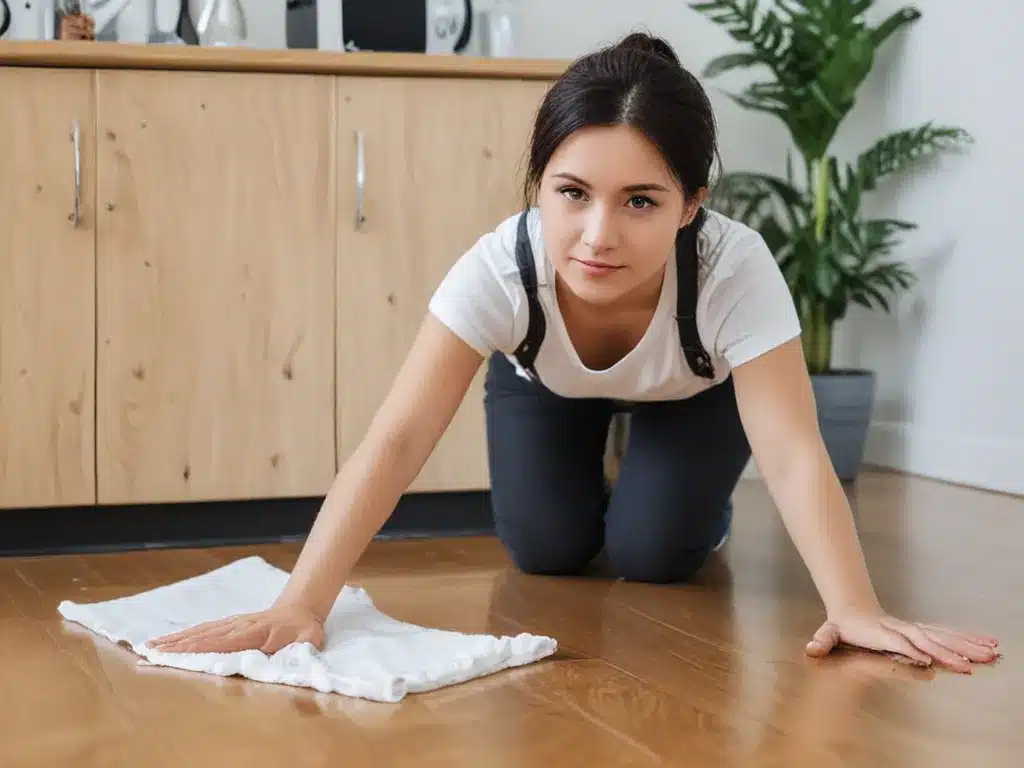Cleaning your home when you have physical limitations can seem daunting. However, with some creative solutions and adaptations, it is possible to keep your home clean and comfortable. Here are some tips for cleaning effectively when you have limited mobility or energy:
Assess Your Needs and Abilities
The first step is to honestly assess what you can and cannot do. Make a list of your physical abilities and limitations. Be specific about movements or actions that are difficult or impossible for you. This will help you adapt your cleaning routine accordingly.
For example, I have difficulty:
- Reaching high cabinets or surfaces
- Standing for long periods of time
- Bending down to clean low surfaces
- Lifting heavy buckets or moving furniture
- Gripping small tools like dusters
But I can still:
- Sit and scrub surfaces at counter height
- Sweep with a long-handled broom
- Wipe down surfaces that are within arm’s reach
- Do laundry with modified tools
- Load a dishwasher while seated
Adapt Tools and Techniques
With your abilities in mind, look for tools and techniques that make cleaning more manageable.
For reaching high or low areas:
- Use long-handled dusters, mops, or scrub brushes
- Attach a grabber tool to pick up items off the floor
- Use a step stool with a handrail for more height and stability
For scrubbing from a seated position:
- Use a bucket caddy that attaches to your walker or wheelchair
- Install pull-out shelves or drawers in lower cabinets for access while seated
- Place a stool in the shower to sit while bathing
For conserving energy:
- Switch to lighter buckets, bins, or laundry baskets
- Install organizers and storage units at accessible heights
- Sit to fold laundry rather than standing
- Schedule tasks over several days instead of all at once
Modify Your Cleaning Routine
Adapt your cleaning schedule and tasks to match your abilities. Here are some suggestions:
Schedule Frequent Light Cleaning
- Do a little bit of cleaning each day rather than saving it all for one long day.
- Focus on quick tasks like wiping counters, sweeping floors, or cleaning one room per day.
- Make daily habits like wiping the sink after brushing your teeth.
Prioritize Important Areas
- Focus on cleaning the rooms you use and see the most like the kitchen, bedroom, and bathroom.
- Only vacuum or mop high-traffic areas if doing the whole room is difficult.
Break Down Larger Tasks
- Break down big tasks like cleaning the bathroom into smaller steps over several days. Scrub the tub one day, wipe the counters the next, etc.
Seek Help When Needed
- Have someone move furniture or do hard-to-reach cleaning periodically.
- Hire a cleaning service to do a thorough deep clean every month or two.
Use Smart Organizing Strategies
Staying organized can make cleaning much easier when you have limited mobility.
- Install open shelves and clear bins so items are visible.
- Put frequently used items within arm’s reach.
- Get lidded laundry hampers to minimize bending to pick up clothes.
- Hang tools like dusters and scrub brushes rather than stooping to reach them.
Listen to Your Body
Cleaning with limitations requires knowing your own abilities.
- Take breaks as needed to conserve energy.
- Use chairs, stools, or mobility aids even for short tasks.
- Stop and rest if you feel pain, dizziness, or other concerning symptoms.
- Ask for help from others when cleaning tasks are too difficult or unsafe for you.
The key is finding adaptations that work with your unique needs. Be flexible, break up tasks, use tools thoughtfully, and don’t over-exert yourself. With some creativity, you can keep your home clean in a way that is comfortable and safe for you.







